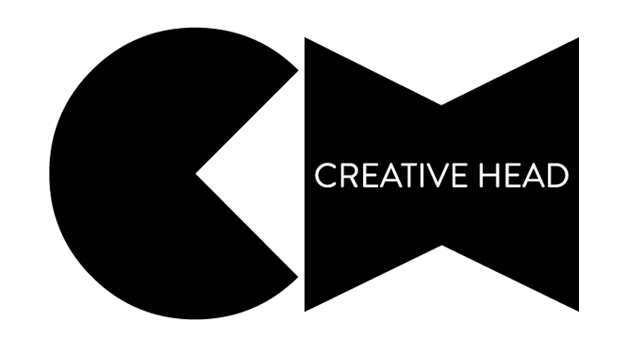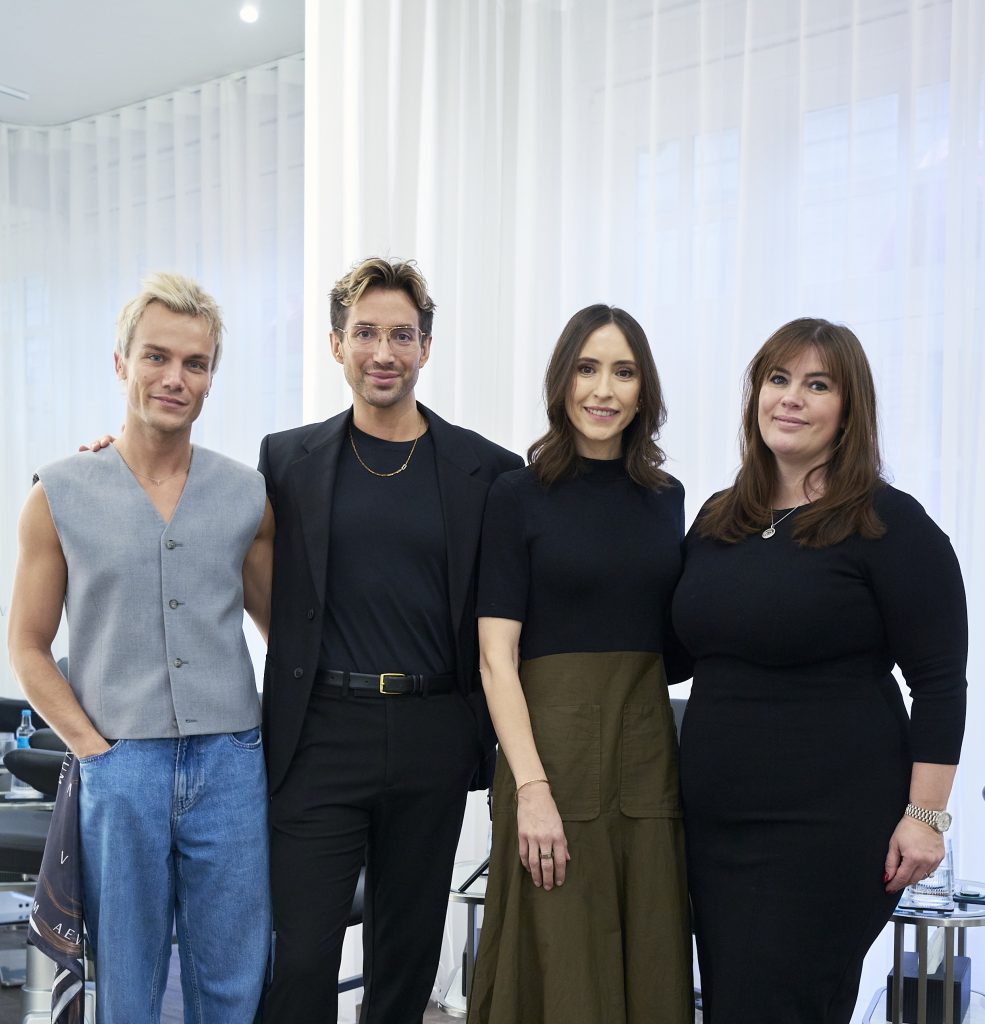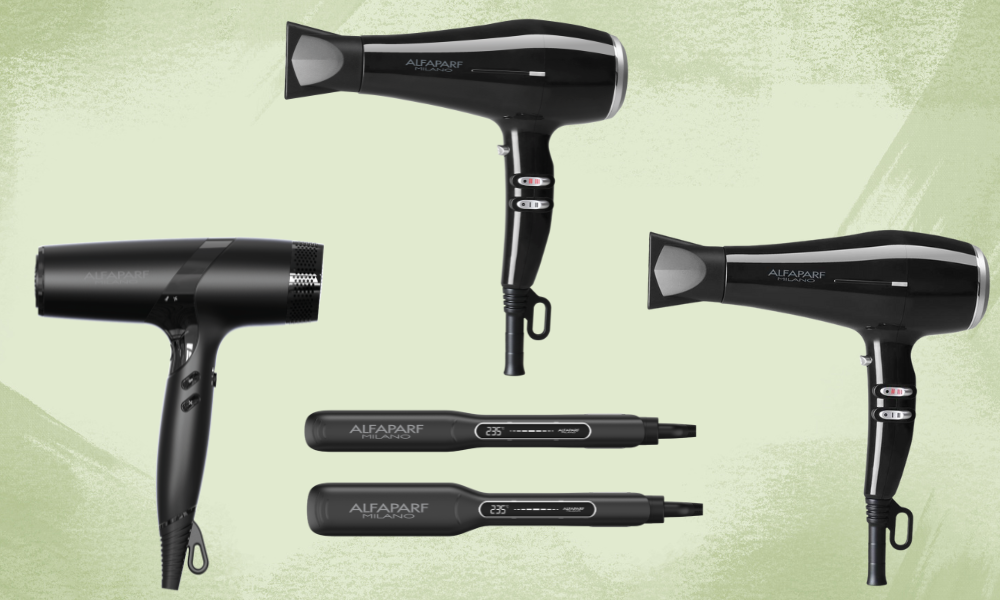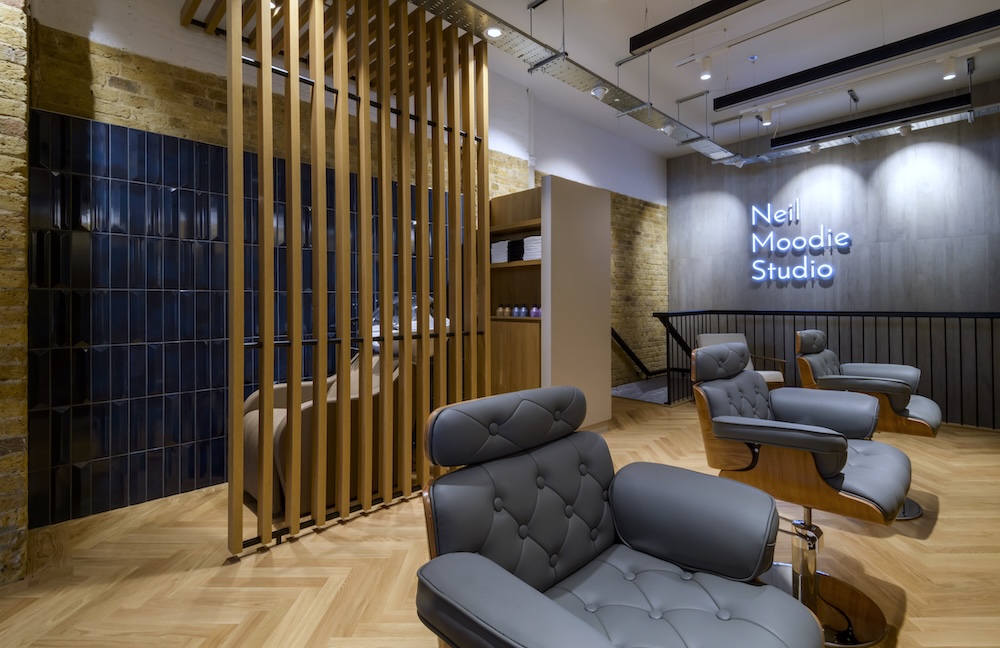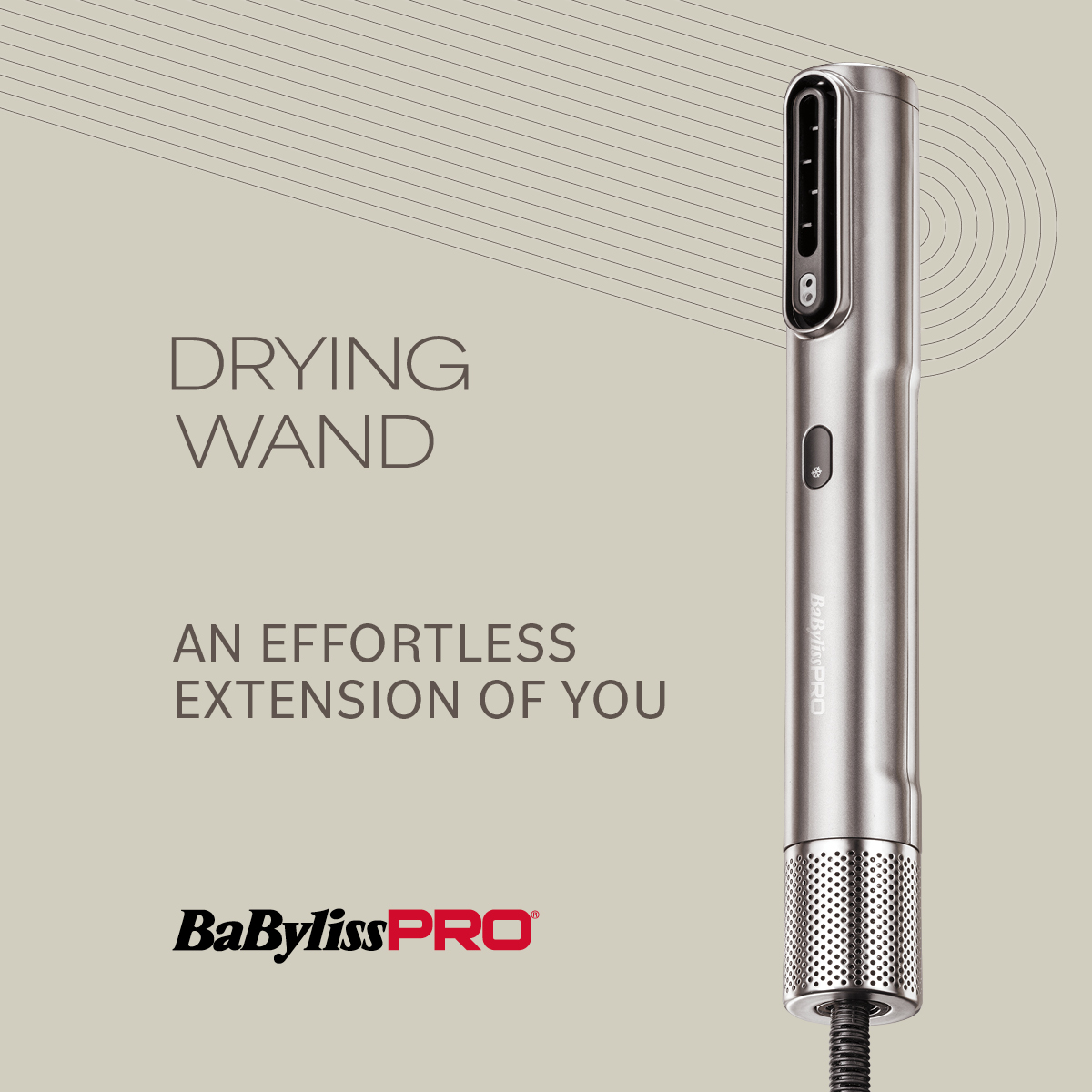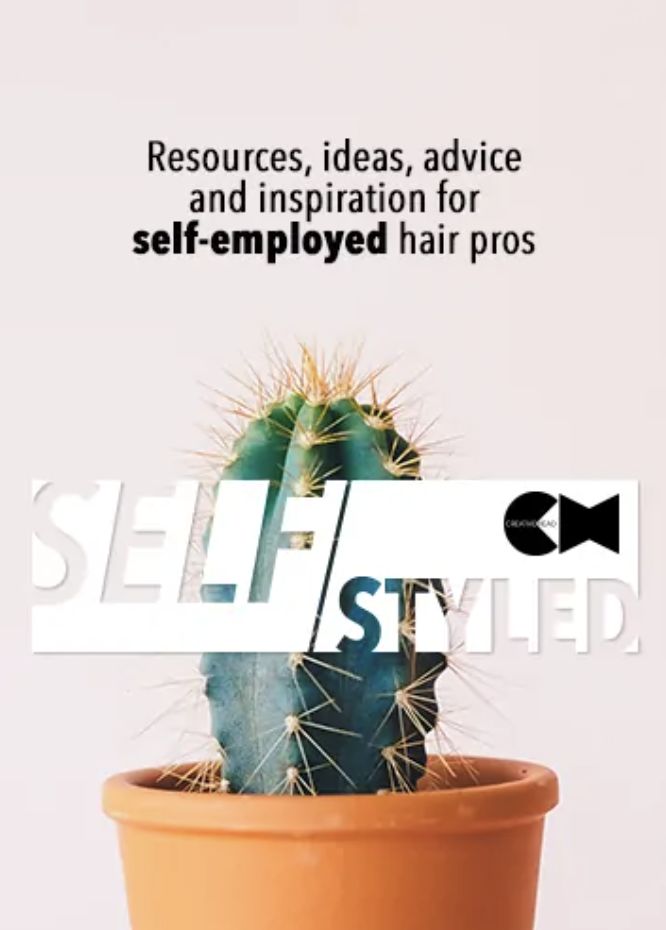“The Science Came First. We Built The Brand From There.” How K18 Changed The Way We Think About Hair
Suveen Sahib had no experience in the haircare industry, but he was curious. And that’s how he came to create K18, the biotech ‘miracle’ product line that’s paving the way for the future of haircare, and much more.
by C | CONVERSATIONS
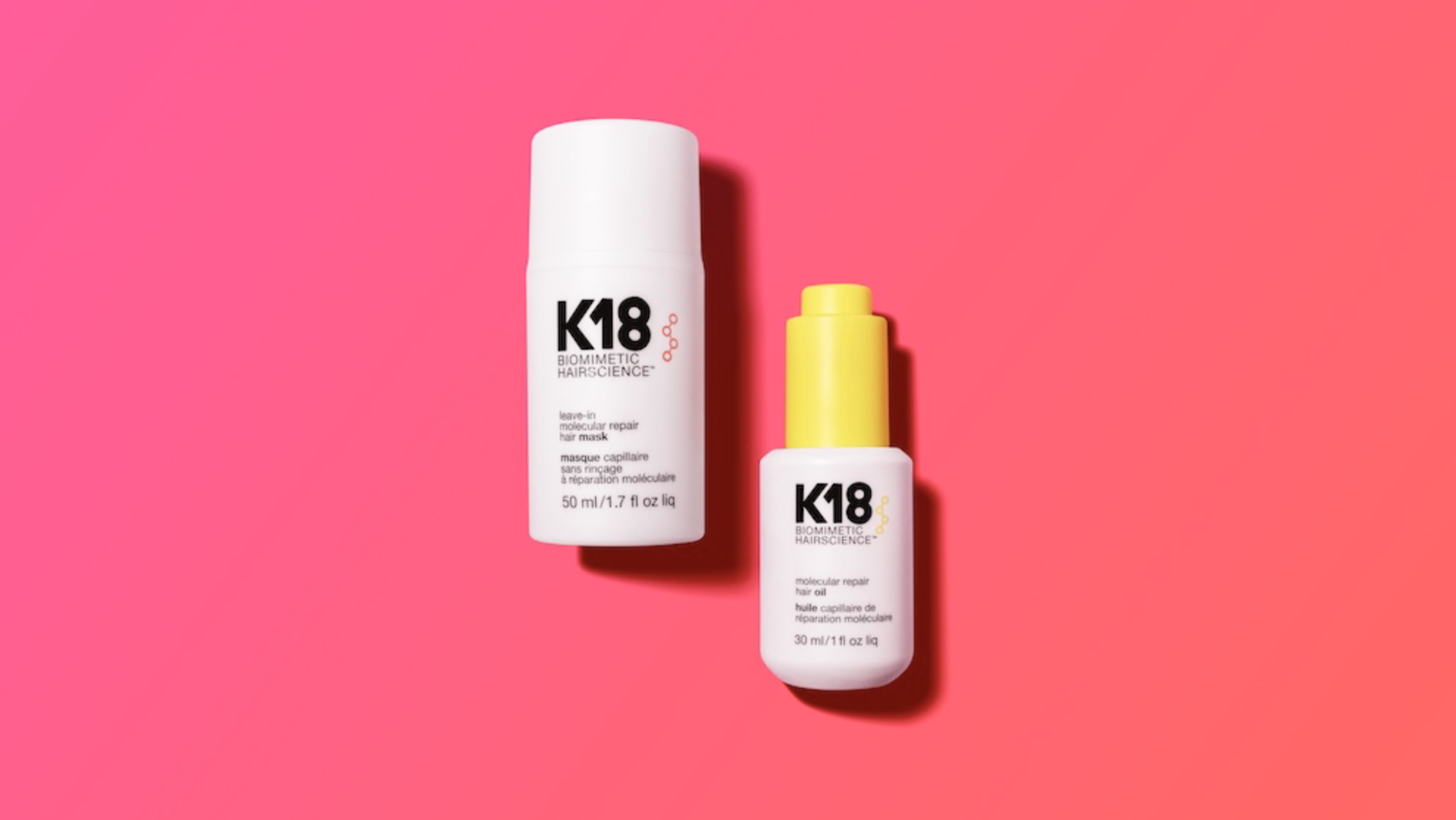
Of all the incredible things there are to say about K18, the product line that promises to restore chemically damaged hair to a near virgin-like state in just four minutes, perhaps the most remarkable is that it was created on a computer.
Yes, K18 was developed (you may want to take a deep breath here) by applying computational models with probabilistic structure/sequence analogy used in the biotech industry to the molecular structure of human hair. Clever stuff, right? Well, luckily for those of us who could read that sentence 20 times and still not understand a word, there’s another way of telling the story.
Back in 1990, US-based tech entrepreneur’s Suveen Sahib’s wife, Britta Cox, had founded Aquis hair towels and turbans, harnessing water-wicking technology to deliver a better way to dry. Suveen was reading some of the customer reviews one day and noticed they were saying things like, “This towel makes my hair less frizzy” or “It gives me better texture”, which he found puzzling because the towel wasn’t adding anything to the hair. He decided to look more closely at the structure of hair and realised that what looks like a fibre on the outside is actually a highly sophisticated biological composite. “The hair towel worked because it understood the biology of hair,” he said. “It absorbed water faster and in a way that meant you didn’t have to move it around so much, and that meant hair didn’t get tangled. But why does hair get tangled in the first place? That took me down the rabbit hole into realising that this wasn’t just about hair drying or hair, it was about beauty in general.”
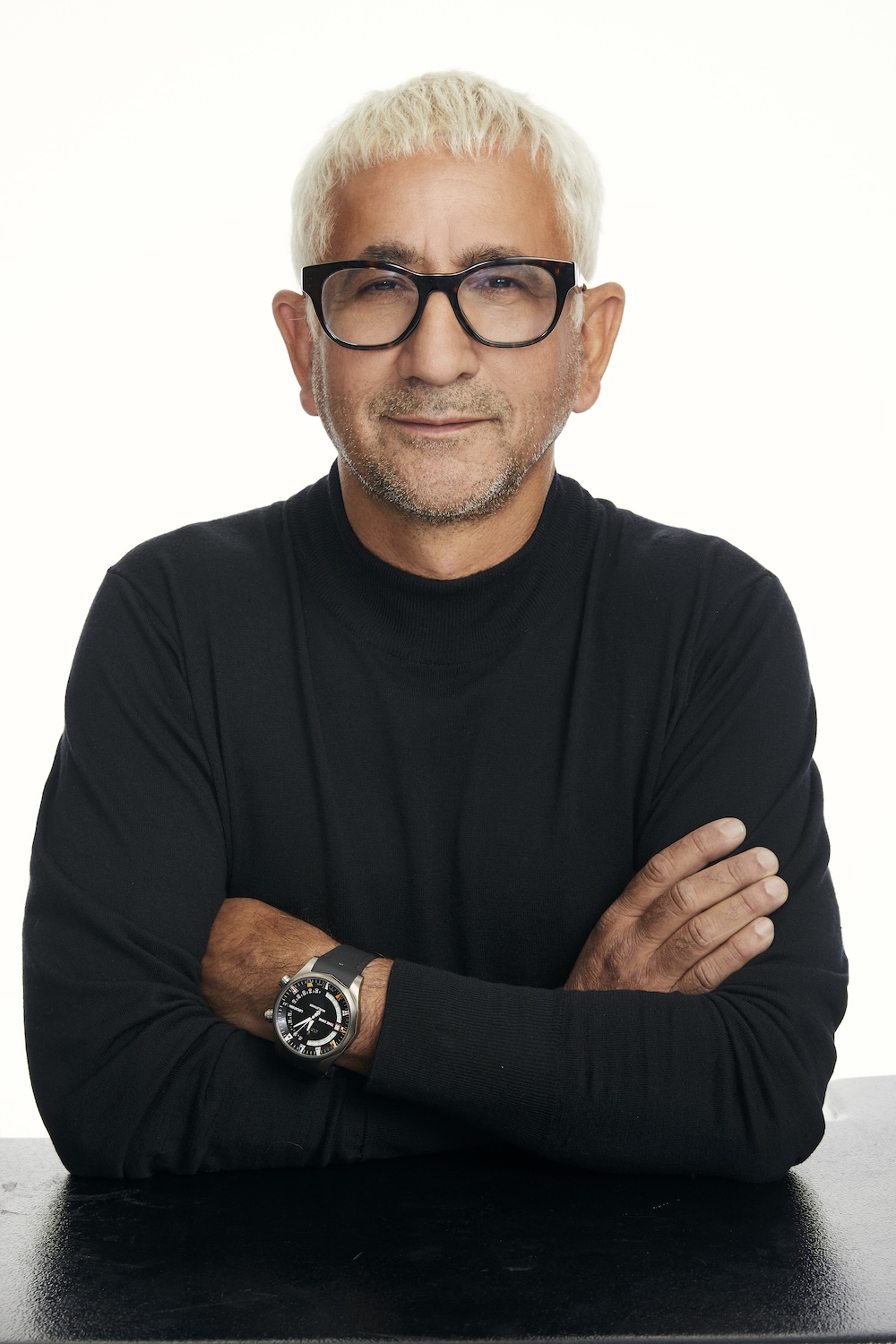
Suveen Sahib
After talking to Britta about her experience of the hair industry, Suveen concluded that most hair products and routines have only resulted in “needy hair” – hair needy for attention and needy for products. “If you think about it, the entire genesis of beauty has been in cosmetic chemistry, and cosmetic chemistry has created great outcomes – hair colour, make-up, hair styling. But cosmetic chemistry does not understand biology, so when it comes to repairing hair it’s not the optimal toolkit,” he says. Fuelled by his passion for “less is more”, Suveen quit his job and devoted himself to learning everything he could about the biology of hair.
“Hair is made up of millions of molecular chains like inter-connected ladders running along the length,” he says. “But hair was never designed by nature to have chemical services applied to it, like perms, straightening, colour – these are what cause the keratin chains to break. For 10 years I worked with a team of biochemists reassembling and synthesising every possible sequence inside the hair to figure out what kind of sequence could not just reconnect these chains but also contribute cysteine to the broken bonds and bind with the keratin-associated proteins, because that’s what makes the matrix of hair inside. And we found 18 was the optimal peptide; it restored the molecular chains and brought hair back to its natural elasticity and strength. In pharma, you create a molecule and then you create a delivery system to deliver the molecule for a targeted outcome. For K18 we took a very similar approach and that’s why it was born on a computer, not in the formulation lab.”
Having tested different variations of actual formulations with Australian hairstylists (“That was the eureka moment, when we saw the joy on their faces at how good hair felt after applying the treatment; we knew then that all those theoretical models had translated into a product that actually worked”), in December 2020, with their K18Peptide trademarked and their formulation perfected, Suveen and Britta launched K18 Biomimetic Hairscience as an in-salon professional service that went beyond hair repair to restore chemically damaged hair to near virgin-like strength and resilience. The fact that the world was in the middle of the Covid-19 pandemic did not deter them. Rather, the pair turned it to their advantage, using social media to spread the word among professional stylists who were desperate for something new and positive.
“I deeply believe that professional hairstylists were our guiding light,” recalls Suveen. “People were saying to me, ‘Go online, sell it via retail’, but to me it was non-negotiable that we would sell through salons. And in certain countries, salons were still open; in the Nordic countries and Australia – they closed much later. So, we were able to send our products out to them and we encouraged them to use it on their own hair, to tell us how they felt about it, and that’s how the conversations started. And the other thing was that, thanks to the pandemic, stylists were now using Zoom. We did thousands upon thousands of Zooms with stylists across the world, introducing them to K18 and why it should be a part of their life. And a big part of that was education – we were the first to socialise a 3-D model of hair and share it with stylists – and that’s where they started appreciating our biotechnology. And the fact was, the product experience, the tactile experience, that all matched up in their own hands.”
Within 18 months of launch, the K18 in-salon treatment had reached 20,000 salons in more than 100 countries – effectively an overnight sensation. Stylists loved its simplicity. They loved that it worked in four minutes. And Suveen loved them right back. “I was spending time with stylists and I fell in love with that community of artists. And one of the things that stood out was the struggle they faced in coming out of the pandemic and having hundreds of products in stock – none of that made sense to me. I want stylists to focus more on their artistry than anything else. They want to be able to do it simply. They want predictability. They want to be able to make more money. So, simplifying that life became something very, very important to me.”
In 2021, after a hugely successful year of trading through the professional channel (the business was profitable within its first quarter), K18 launched its bond-building Leave-In Molecular Repair Hair Mask with high street retailer Sephora, with an accompanying #K18hairflip challenge on TikTok generating more than 11.2 billion views. The move instantly turned K18 into a best-selling hair care brand at the beauty retailer, but what did this shift away from the salon mean for stylists?
“People were saying to me, ‘Go online, sell it via retail’, but to me it was non-negotiable that we would sell through salons”
“One thing we realised is that as a stylist, you’re often the first to introduce a product to a client, and the conversation can get heavy if the consumer doesn’t know about it, because it feels like you’re trying to sell it and that wears you down,” says Suveen. “Stylists told us they love it when there’s a product that consumers are telling them about because they’ve seen it on social media, or whatever. That makes the conversation easier and it starts bringing traffic to the stylist’s chair.
“We’d also created K18 to use as a salon service when hair is being coloured. But what about post-colour? A client can wash her hair 20, 30 times between salon visits and coloured hair is more susceptible to UV damage. So, we realised we needed to keep a client’s hair in a reasonable state so that when she returns to the salon you can improve it even more because K18 is progressive. But this was not about driving retail, this was about driving the advocacy flywheel, which works both ways.”
Nevertheless, in December 2023, after just three years in business, Suveen and Britta sold K18 to Unilever for an undisclosed (but presumably rather large) sum. Now expanded with a line of shampoos retailing at £39 and a hair oil at £65, K18 will sit within Unilever Prestige, a tight edit of 10 premium beauty brands, including Dermalogica, Living Proof and Hourglass.
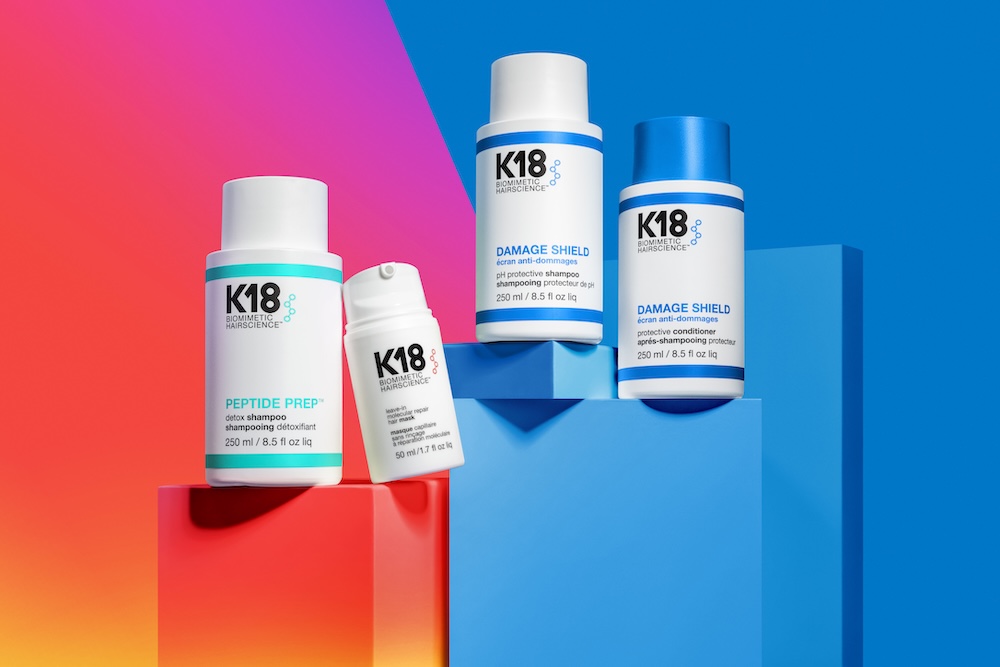
The K18 range has expanded and is now owned by Unilever
“K18 is a fast-growing brand that sits at the intersection of beauty and biotechnology,” said Vasiliki Petrou, executive vice president of Unilever Prestige, at the time. “It has been a pioneer of using social media to educate and engage consumers about the science of hair. This acquisition complements our fast-growing portfolio of premium, culturally relevant consumer brands.”
But what does this mean for Suveen and Britta? “I continue to be CEO,” says Suveen, “and I will continue to steer our destiny for many years to come. And if you think about it, it was too early. There is still so much that’s happening within K18 and there’s still so much to come. And that’s what excites me, what we at K18 can bring to the table and what we can learn from Unilever. Because we were global, literally from day one, and you realise there are things that you don’t know and that’s where Unilever come in with a very strong set of complementary capabilities, which are going to be important if K18 is to become a billion-dollar brand.”
While Suveen is confident that Unilever will allow K18 to continue to focus their attention on small independent businesses (“What I love about Unilever is they appreciate a brand and that its ecosystem needs to be nurtured – that freedom, that oxygen that brands like us need”), the challenge he sees moving forward will be “re-architecting” the way we work with our hair.
“Stylists told us they love it when there’s a product that consumers are telling them about because they’ve seen it on social media… that makes the conversation easier and it starts bringing traffic to the stylist’s chair”
“The haircare industry continues to stay rooted in the way it’s always been. The relationship with hair they’ve created is all about control. Controlling frizz, controlling the style. For me, it needs to shift to understanding hair and working with it because that’s how you can impact real change and see the results people want. Less is more for your hair and less is what healthy hair really needs, but the current conversation is driven by an industry with tens of thousands of products which further drives over-consumption and waste. I ultimately want to see the product offering cut by half. The number of resources hair consumes on a daily basis is not good for people, their hair, the planet, or their wallet.
“I believe K18 is leading this revolution already — to offer the technology and science that allows people to own their relationship with their hair in a new way. We take care of our silk shirts and cashmere sweaters with immense care, but what about our hair? We need to apply that same philosophy of care. If hair is one of our most precious resources, are we thinking through the way we wash it, the way we dry it, the wear we put it through, the way we feed it? Hair mindfulness is a new way to think about our routine and in that we can unlock confidence that wasn’t possible until now. To truly liberate expression.”
